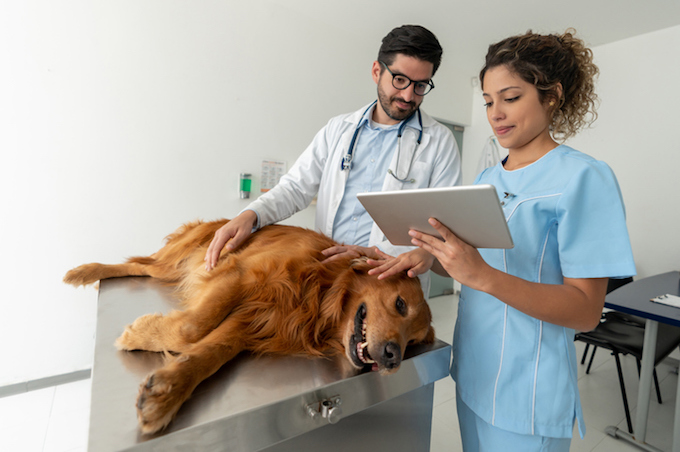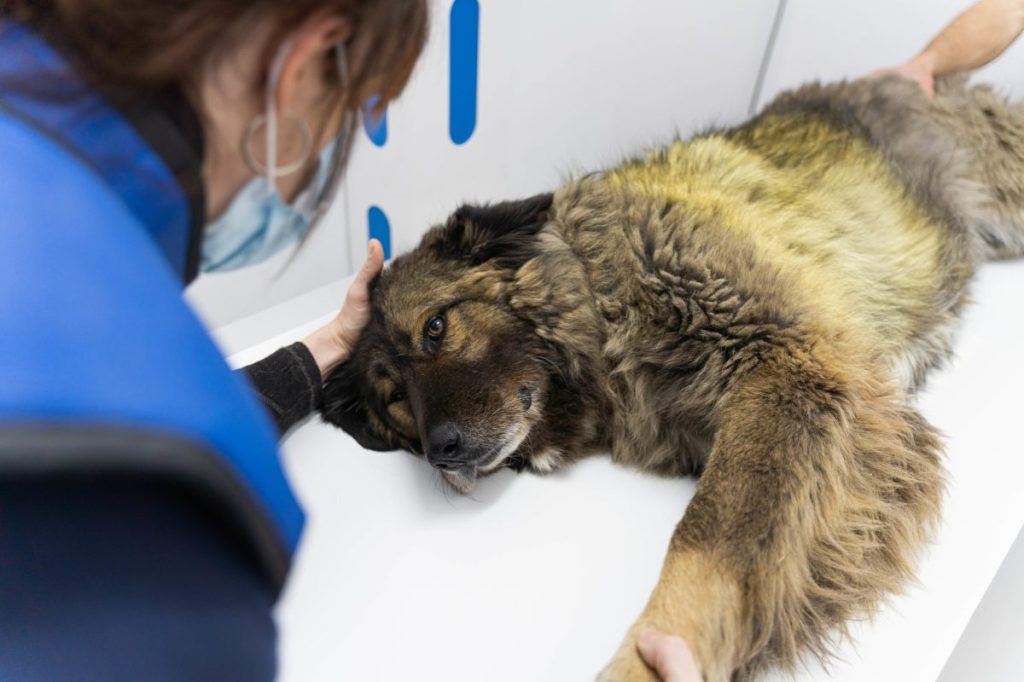Glomerulonephritis in dogs is a kidney disease where small vessels called glomeruli become inflamed. Usually, the glomeruli filter blood through the body. Technically, the condition is also referred to as glomerular nephritis or GN.
Unfortunately, certain dog breeds suffer from glomerular nephritis more than others. For instance, some of those breeds include Greyhounds, Bernese Mountain Dogs, and Cocker Spaniels.
If you see the signs of glomerulonephritis in your dog, then get to a veterinarian for a proper diagnosis and treatment.
Here’s what you should know about the symptoms, causes, and treatments for the condition.
Symptoms of glomerulonephritis in dogs
The condition produces a wide range of symptoms. For instance, some of the most common symptoms of glomerular nephritis include:
- Drinking more water than usual
- Vomiting
- Loss of appetite
- Blood in the urine
- Losing weight
- Peeing a lot
- Acting lethargic
Causes of glomerulonephritis in dogs

The cause of the condition can be one of a number of things. For example, some of the most common causes include:
- Heartworms
- Diabetes mellitus
- Infection
- Ticks
- Autoimmune issues
- Lyme disease
- Skin inflammation
- Gum disease
Additionally, certain dog breeds suffer from the condition more than others. For instance, some of those breeds include:
- Bull Terriers
- Samoyeds
- Dalmatians
- Newfoundlands
- Cocker Spaniels
- Bernese Mountain Dogs
- Rottweilers
- Greyhounds
Treatments for glomerulonephritis in dogs
Firstly, your vet will ask about your dog’s symptoms. Secondly, a full physical examination will be carried out. Thirdly, blood and urine tests will also be taken. Subsequently, the test results can help to indicate the condition. Ultimately, a biopsy of the kidney can be used to confirm the condition.
Generally, treatment will focus on targeting the underlying condition. Intravenous fluid therapy is often used. Antibiotics will also be prescribed to treat any infections. As always, if your vet prescribes your dog any medicine, make sure to stick to the correct dose and frequency instructions. Also, complete the full course of medicine.
In general, omega-3 fatty acid supplements are frequently recommended. Additionally, your dog can benefit from a prescription diet. Your vet will help to formulate this.




